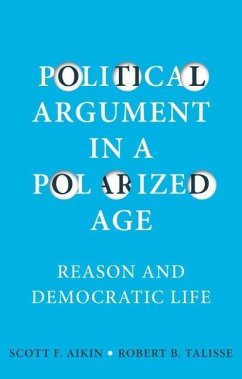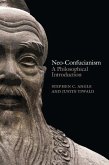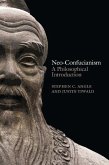From obnoxious public figures to online trolling and accusations of "fake news", almost no one seems able to disagree without hostility. But polite discord sounds farfetched when issues are so personal and fundamental that those on opposing sides appear to have no common ground. How do you debate the "enemy"?
Philosophers Scott Aikin and Robert Talisse show that disagreeing civilly, even with your sworn enemies, is a crucial part of democracy. Rejecting the popular view that civility requires a polite and concessive attitude, they argue that our biggest challenge is not remaining calm in the face of an opponent, but rather ensuring that our political arguments actually address those on the opposing side. Too often politicians and pundits merely simulate political debate, offering carefully structured caricatures of their opponents. These simulations mimic political argument in a way designed to convince citizens that those with whom they disagree are not worth talking to.
Good democracy thrives off conflict, but until we learn the difference between real and simulated arguments we will be doomed to speak at cross-purposes. Aikin and Talisse provide a crash course in political rhetoric for the concerned citizen, showing readers why understanding the structure of arguments is just as vital for a healthy democracy as debate over facts and values. But there's a sting in the tail - no sooner have we learned rhetorical techniques for better disagreement than these techniques themselves become weapons with which to ignore our enemies, as accusations like "false equivalence" and "ad hominem" are used to silence criticism. Civility requires us to be eternally vigilant to the ways we disagree.
Philosophers Scott Aikin and Robert Talisse show that disagreeing civilly, even with your sworn enemies, is a crucial part of democracy. Rejecting the popular view that civility requires a polite and concessive attitude, they argue that our biggest challenge is not remaining calm in the face of an opponent, but rather ensuring that our political arguments actually address those on the opposing side. Too often politicians and pundits merely simulate political debate, offering carefully structured caricatures of their opponents. These simulations mimic political argument in a way designed to convince citizens that those with whom they disagree are not worth talking to.
Good democracy thrives off conflict, but until we learn the difference between real and simulated arguments we will be doomed to speak at cross-purposes. Aikin and Talisse provide a crash course in political rhetoric for the concerned citizen, showing readers why understanding the structure of arguments is just as vital for a healthy democracy as debate over facts and values. But there's a sting in the tail - no sooner have we learned rhetorical techniques for better disagreement than these techniques themselves become weapons with which to ignore our enemies, as accusations like "false equivalence" and "ad hominem" are used to silence criticism. Civility requires us to be eternally vigilant to the ways we disagree.
?Democracy appears threatened from the deepening, polarisation of citizens. From Trump to Brexit where one person's truth is another's fake news, wisdom is much needed to help us navigate such uncertain, choppy waters. Thankfully, we have two such guides in Aikin and Talisse who can bring clarity of understanding to what is complex and obscure. An excellent read.?
Professor Thom Brooks, Chair in Law and Government, Durham University
?At a time of deep political polarization, Professors Aikin and Talisse have written a very important book designed, not to try to save democracy, but to manage its symptoms. Their focus on the virtue of civility is especially significant. Highly recommended!?
Christian B. Miller, A.C. Reid Professor of Philosophy at Wake Forest University
Professor Thom Brooks, Chair in Law and Government, Durham University
?At a time of deep political polarization, Professors Aikin and Talisse have written a very important book designed, not to try to save democracy, but to manage its symptoms. Their focus on the virtue of civility is especially significant. Highly recommended!?
Christian B. Miller, A.C. Reid Professor of Philosophy at Wake Forest University








